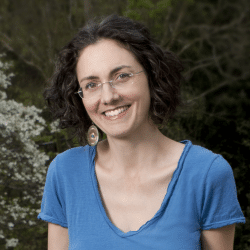Introduction
Using a holistic approach, Salamatu is refocusing families to work as a unit changing the dynamics between men and women. She is positioning smallholder families to jointly engage in primary cultivation of agricultural products, diversify their production lines, improve nutrition as well as increase their income.
The New Idea
In most Northern Nigerian agrarian societies men and women tend to live and farm independently of each other even while married. For the women, their gathering is exclusively women only, regardless of the issues they are faced with - marriage, agriculture, education etc. The same goes with the men in these regions. Salamatu observed that this division contributes to a general lack of economic development among the peoples of these regions. This is particularly the case when it comes to women, since they do not own land or get to participate in the decision making of the farm.
In 1993 She started out by designing a system which would help women gain economic power and the freedom to make decisions and make meaningful contributions to the development of their families and in turn the entire society. About 10 years of doing this work, she realized that empowering women in isolation did not necessarily improve their livelihoods and increase their income.
In order to improve the status of women and promote gender equality, Salamatu realized that she needed to pay more attention to male involvement. The reason for this is because the men still owned and controlled the lands and women earning more income made them targets of domestic violence, the monies made were taken away by the men and used for other purchases. The women were still faced with the barriers of transportation, perishable farm produce, lack of storage facilities to enable them store their produce and there was also the issue of the middlemen manipulating market prices.
Using a holistic approach, Salamatu is refocusing families to work as a unit and changing the dynamic between men and women. She is positioning smallholder families to jointly engage in primary cultivation of agricultural products, diversify their production lines, improve nutrition as well as increase their income.
The Problem
Nigeria is set to become the fourth most populous country in the world by 2025.Agriculture plays an important role in its economy, contributing approximately 40% of its GDP and engaging about 60% of the workforce. It plays an even larger role in the north employing 80% of households compared with approximately 50% in the more urban, oil-producing south. Yet the sector remains mostly small scale and subsistence-based, with relatively low levels of commercialisation. Nearly half of Nigerians live below the national poverty line, and those in the agricultural sector face even higher poverty levels. Numerous factors constrain women’s contribution to agricultural growth. As in much of sub-Saharan Africa, women in Nigeria have relatively limited access to productive agricultural land, inputs and services compared with men. Reducing the gender gap in agricultural productivity thus stands to substantially reduce poverty in the country.
The insurgency in Northern Nigeria has taken the country backwards by 20 years. The North-East used to be the agricultural hub in Nigeria; it was providing 23 per cent of essential grains and legumes such as beans, sorghum and cowpea, among others. But today, the farmers have become victims of insurgency.
To remedy this situation a lot of organizations sprang up and proffered solutions to this problem, developing female farmers associations that enabled women share experiences and best practices. These female farmers’ networks trained and invested in women to enable them produce premium produce and earn more income. One of the short falls of this model was that it tackled the problem in isolation, in the sense that women were empowered in isolation, women who were empowered still lacked the capacity to go into sustainable farming and commercial agriculture because they still lacked access to productive resources. This model did not work because it failed to recognise the relationship that exists between agricultural output and gender inequality in Nigeria
The Strategy
Having grown up in the Northern part of Nigeria Salamatu is cognizant of the fact that the North is a place where tradition, culture and religion dictate men and women’s relationship, male domination is entrenched in the structure of social organisation and institution at all levels, women are marginalised in education, labour market, politics, business, family, domestic matters and inheritance. As a result of this women have accepted their fate as second class citizens who lack access to farmlands, loans and agricultural opportunities. She realized that the women had accepted their fate as second class citizens, doing heavy farm work, carrying heavy loads and having children simply because nobody taught them differently. Salamatu recognised that farming will be a tool to become economically viable for the women to rise up from their dependence on the male dominated culture.
In 1996 she started women’s farmers association where she mobilised women and taught them basic agricultural techniques and conservation, giving the women seed funding to be able to purchase seeds and other simple agricultural tools. One of the fallout of this method was that the men collected the funds from the women and used it for other things, Leaving the women with the knowledge and no funds to start their agric businesses.
Salamatu was able to remedy this situation after she gained a Chevening scholarship, where she learned gender mainstreaming and organizational development. She came back to Nigeria reorganised her programme and registered the Women’s farmers association of Nigeria as a non-governmental organization. For sustainability she also registered WOFAN associates to generate funds for the non-profit part of WOFAN. Through WOFAN she involves 75% of women and 25% of men in the North, teaching families to farm and diversify.
Without disrupting the status quo where men still own the land she abided by the cultural tradition and used it as a means to empowering the women. She developed a system where the men are responsible for growing crops, the women are involved in processing while young people design and fabricate machines for processing. Salamatu helps the men get premium seeds that can be planted all year round, the women are taught to transform the farm produce into value added products and are linked with the market directly - skipping the middlemen and the transportation hurdles. The women form centres where they put money together, buy up the men's produce, and make these value added products like soap, baby formula, animal feed and sell it to the market. She has integrated these families in the various segments of the value chain to transform traditional crops into food and non-food products. This new system has led to the creation of employment opportunities, especially with processing. This contributes to the overall value they gain as they improve their livelihoods whilst reducing their risks and increasing their resilience. Starting with rice and groundnut production the smallholder families are able to process up to 25 products from each crop. She started several cooperatives for women with each group comprising 30 women where they organise and save up for agricultural tools and processing equipment. Each group has a centre where they are trained on general agricultural practices, financial management system, group dynamics, leadership skills and ways that they can translate the agricultural policy. With this system She has created a-women run processing industry as well as a supply chain between the processing industries and the local market. During the harvest season each centre organises and buys up the farm produce from the men, these produce go through processing and are sold to off-takers who buy directly from the women, this completely cuts off transportation hurdles and middlemen, putting the women in charge of their income. So far Salamatu has trained 76,230 female processors
Salamatu is fostering resilience and Sustainability for food and Nutrition security in Northern Nigeria by increasing nutrition awareness and building capacity within communities, schools, hospitals and clinics, so far In 7 States She has been able to improve the livelihoods and the nutrition of 88,230 households. She organises outreach/ counseling programs to increase agricultural production, utilization and marketing to enhance family nutrition, as a result there has been improved income and stable food security. Through dietary diversity and promotion of home production of a diversity of foods she has also improved nutrition for infants, young children, and pregnant women, the aged, sick and diabetic patients in the states where her programs are carried out. She partnered with EHealth Africa in the promotion of orange fleshed sweet potato (OFSP) in order to increase intake and utilization of vitamin A rich foods by the general populace. She also recently formed the Women Nutrition Vendors and Entrepreneurs (WIVES) and Safe and Healthy Eating (SHE) school children’s club, these two nutrition initiatives will enhance family nutrition in Northern Nigeria.
Salamatu has improved output and increased income by training of farmers to enhance good agricultural practices. This has been achieved by positioning farmers to improve quantity and quality of rice and aflatoxin free groundnut production. she has trained female processors on improved parboiling (of rice) and groundnut oil extraction (from groundnut),trained on financial literacy and group dynamics for better business management and also sensitized farmers on family nutrition to reduce malnutrition, putting emphasis on Vitamin A rich food, baby weaning food, nutrition for lactating mothers as well as pregnant women and diabetic patients . So far she has increased the income of 176,460 farmers in Northern Nigeria.
Salamatu’s multiple systems changing approach is a result of her experience of working in this field for nearly two decades and her social entrepreneurial flair for changing more male dominated systems and industries to one where women are equally represented.
She partners with organizations specialised in various areas in the agric value chain and are connects these women to acquire skills in various areas from the organizations. She partners with the National seed council, National groundnut producers processors and marketers association of Nigeria, Rice Association of Nigeria, Institute of Agric Research, Bayero University Kano, State Agricultural development project and The International Crops Research Institute for the Semi-Arid Tropics (ICRISAT). Presently she is working with the Association of seed farmers and agro dealers association trying to find ways that they can provide seeds to persons who have been displaced by Boko Haram to enable them plant around their camps and help them get reintegrated back into their communities.
Salamatu has spread her idea in Northern through local women’s groups to reach women in underserved communities she intends to spread other parts of Africa with similar terrain by partnering with organizations, and tertiary institutions and faith based organizations working in local communities to help women form cooperatives where they can be taught her model.
Salamatu has identified that her organization (WOFAN) needs its capacity built on standardization, linkage to organizations such as NAFDAC/ financial Institution for the women to forge ahead, as well as assist the women come up with small cottage industries/ businesses
The Person
Samalatu Garba was born in the Northern part of Nigeria, even though she was from a Muslim family her father sent her to a catholic school. While in school she learnt how to plan her day and her life. She had a way of life that was very different from other northern women because she was open to learning, became very decisive and also became very assertive. This trait helped her to become a prefect in her class.
She wanted to be a medical doctor but ended up reading biological sciences in the University and specialised in plant pathology, after she graduated she became a graduate assistant in Ahmadu bello University and eventually became a lecturer. She lectured in Ahmadu Bello University for 8 years and then moved to Bayero University Kano and lectured for 7 years.
While lecturing in Bayero University Kano Salamatu stumbled on a Northern woman who was heavily pregnant, uneducated and suffered severely as a result of the belief system and the fact that she was poor and lacked the means to better her livelihood, even though at that time she offered the little support she could, after two months that woman died, this experience prompted her to take a turn around and she decided to use the most available tool which women had to give them a voice in Northern Nigeria




